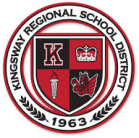Executive Coaching
What is Group Executive Coaching (GEC)?
Most Professional Development for school and district leaders occurs in the traditional form of a workshop or presentation. With our 3 part executive leadership coaching program, leaders customize their work, with sessions for strategizing, implementing, and evaluating their progress.
This active learning method combines individual goals for personal growth and organizational goals for professional development making it uniquely wholesome. The work occurs through both a content and a process lens, meaning leaders experience organic intra/interpersonal issues that arise spontaneously, making the work extremely exciting and immensely relevant.
What is the Purpose of GEC?
Executive is a tool to support high performing district leaders improve specific aspects of their work with others. For those districts wishing to fortify their leadership team against stress and deepen management and leadership skills, while building resilience among their faculty, GEC is the right solution. Secondary goals of GEC include increased team cohesion, inoculation against ambivalence, and a fortification for wellness.
For districts who wish to innovate programming for faculty or students, reduce the number of crisis, or scrutinize processes that can add time and goodwill go their environment, executive coaching is a cost efficient approach to incremental, transitional and transformational change.
What are sample individual/ organizational goals of GEC?
Most leaders begin their work with simple goals such as better managing stress or dealing with challenging employees. Deeper issues surrounding motivation, attitude, and resistance are more complex goals that often emerge in more cohesive groups over time. Organizational goals may include increasing faculty wellness, reducing rates of student absenteeism, preventing faculty turnover, and preventing school violence. Systemic goals are generally derived from a school district’s strategic plan.
What are the benefits of GEC?
- Universality: As members recognize the familiarity of their struggles, permission is heightened to collaborate for solutions.
- Creative Brainstorming: Complex issues require more involved problem solving, a combination of intra, interpersonal, and systemic interventions.
- Diversified Support: Within a group there is a wider network of supports, allowing members to identify the most beneficial modes and methods.
- High Accountability: Among colleagues, the impetus to dig deeper and work harder is significantly higher.
- Deepened Awareness: We enter coaching identifying several objectives, whereas with group coaching we recognize new areas of importance.
- Microcosm: The issues that evolve as an organic part of evolving systems, allows for spontaneous and less scripted exploration.
- Human Laboratory: Individual coaching is more of a cerebral process where group coaching offers opportunities to put work into practice, experimenting with new ways of relating.
- High Returns: The cost for group coaching is significantly less expensive than individual coaching, allowing for more leaders to benefit and generate much higher returns on invested money.
- Enjoyability: Personal growth work combined with professional development is hard work, made fun and rewarding done as part of a team.
- Scaffolded Learning: While each member identifies unique objectives, group coaching offers a number of broader goals helpful to each person and the organization.
- Sustainability: While most individual coaching is dependent upon the coach, a group facilitator creates a system that maintains the work well beyond the use of the coach.
- Resilience: All coaching recipients will develop an RQ score, that helps them better navigate stress to address all of personal and professional goals.
- Process & Content: Unlike individual coaching will is all content, group coaching allows for work to be done by considering the ‘how’ not just the ‘what’.
 "Through creative, engaging and thought-provoking strategies, he has helped shape the perspectives of our school leaders as it pertains to SEL topics in the field of public education. Our school leaders have been motivated to apply theory and real-world applications to how we approach future programming and look forward to his return to our district.”
"Through creative, engaging and thought-provoking strategies, he has helped shape the perspectives of our school leaders as it pertains to SEL topics in the field of public education. Our school leaders have been motivated to apply theory and real-world applications to how we approach future programming and look forward to his return to our district.”
- Jim Lavender, Superintendent, Kingsway Regional & South Harrison Public Schools